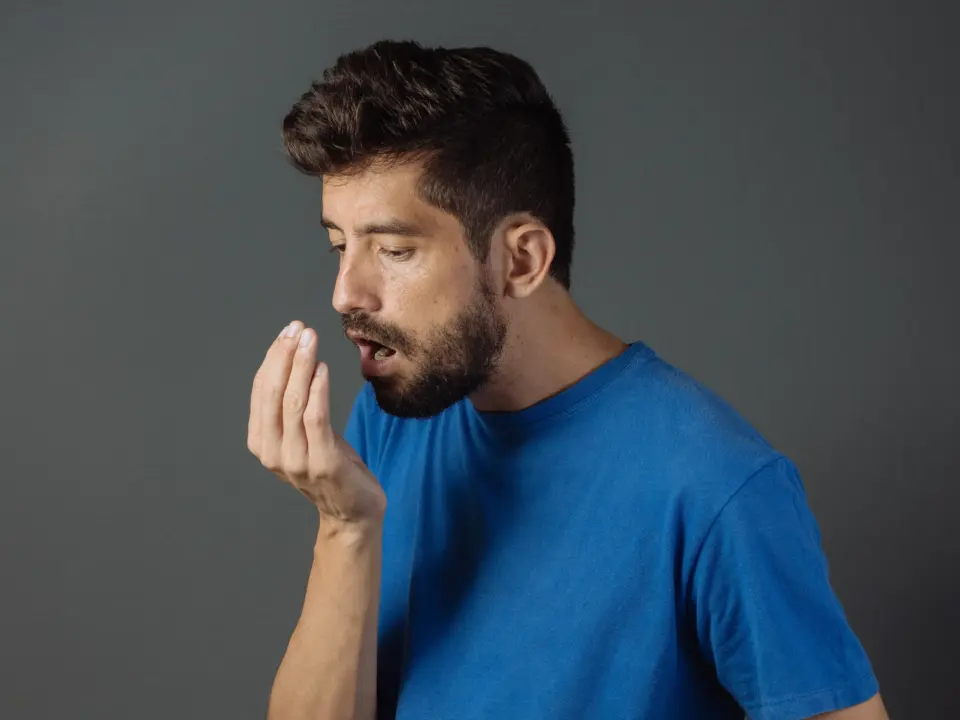
A Parent’s Guide to Teaching Kids Good Oral Hygiene Habits
April 11, 2025
8 Common Signs of Sleep Apnea
May 13, 2025Let’s be honest, most of us chew gum, whether it’s to freshen bad breath or for the minty flavour. But is chewing gum bad for your teeth? The simple answer is no, if it is the right kind. Let’s explore the benefits and effects that chewing gum can have on your teeth.
Can chewing gum be good for your teeth?
Contrary to belief, yes, it can be. Not all gum is harmful to your teeth. Actually, chewing gum can have benefits for your oral health. According to the Candian Dental Association, chewing gum increases the flow of saliva, which helps clear away food bacteria, strengthen your teeth and reduce acid in your mouth that weakens enamel.
Sugar-free gums are often sweetened with xylitol. Xylitol is a naturally occurring sweetener that has shown a decrease in the amount of cavity-causing bacteria in plaque. Xylitol works by neutralizing the acids made by bacteria, helping to keep your tooth enamel strong and prevent tooth decay.
Is chewing gum with sugar bad for your teeth?
Chewing gum with sugar, on the other hand, is a different story. When you chew sugary gum, the sugar lingers in your mouth and provides fuel for bacteria. These bacteria produce acids that can erode your enamel, leading to cavities and tooth decay over time. So, if you enjoy chewing gum, it is best to go for sugar-free gum.
Can chewing gum improve bad breath?
Yes, chewing gum can definitely help with bad breath. In fact, it is probably the most likely reason that people chew gum. Chewing gum, especially mint-flavoured, can temporarily cover up unpleasant odours by increasing saliva production. This helps to wash away food particles that can cause bad breath.
However, if your goal is long-term freshness, it’s important to note that sugar-free gum is your best option. The sugar is regular gum contribute to the bacteria in your mouth cause bad breath.
In some cases, persistent bad breath (halitosis) can be a sign of underlying dental or medical conditions, such as gum disease, dry mouth, or digestive issues. If you find yourself relying on gum to mask bad breath frequently, it may be worth visiting your dental office to determine the root cause.
Is chewing too much gum bad for your jaw?
While there are numerous benefits of chewing gum, excessive gum chewing can have negative effects. Over time, constant chewing can strain your jaw muscles and worsen or lead to temporomandiluar joining disorder (TMJ). TMJ is a condition that affects the joints that connect your jaw to your skull. Leading to pain and discomfort.
People who chew gum excessively may experience jaw pain, headaches, or clicking noises when opening or closing their mouths. In more severe cases, TMJ disorder can cause difficulty chewing, locking of the jaw, or even neck and shoulder pain. To avoid this, it’s essential to use moderation and limit the amount of time spent chewing gum each day.
If you already have jaw discomfort or a history of TMJ issues, it may be a good idea to avoid chewing gum altogether or to consult with your dentist for advice or treatment.

Does chewing gum replace brushing and flossing?
No, chewing gum should never be a substitute for regular brushing and flossing. While gum helps stimulate saliva and clear away some bacteria, it does not remove plaque buildup or food particles stuck between teeth. Proper oral hygiene, including brushing twice a day and flossing daily, is still essential for maintaining a healthy oral care routine.
Is it safe to chew gum with braces?
If you have braces, you may be wondering whether it’s okay to regularly chew gum. The general advice from orthodontists is to avoid gum altogether while wearing braces, as it can stick to brackets and wires, leading to damage or misalignment. The sticky nature of gum makes it more likely to pull on the metal components, increasing the risk of breaking a bracket or bending a wire.
However, some orthodontists now say that sugar-free gum may be okay in moderation—especially those that contain xylitol, as it can help reduce bacteria and prevent cavities while you have braces.
Even if you are careful, chewing gum with braces still poses a risk of damaging your orthodontic treatment, so it’s best to be cautious. Instead of gum, you can freshen your breath with sugar-free mints or use a fluoride mouth rinse to keep your teeth clean and healthy during your orthodontic journey.
Tips for Choosing the Right Chewing Gum
- Look for gum that is labeled “sugar-free.”
- Choose gum that contains xylitol for added dental benefits.
- Avoid gum with artificial sweeteners that may not be as beneficial for your health.
- If you experience jaw discomfort, limit your gum chewing to short periods.
- Remember that while gum can help oral health, it’s not a substitute for brushing and flossing.
- If you have braces or dental work, ask your dentist before chewing gum, as it may cause damage.
Final Thoughts
Chewing gum can be good or bad for your teeth, depending on the type you choose. Chewing sugar-free gum, especially those containing xylitol, can promote oral health by reducing bacteria and strengthening enamel. However, sugary gum can contribute to tooth decay.
If you’re ever unsure about whether chewing gum is right for you, consult your dentist for recommendations. The key is balance—enjoy your gum responsibly while keeping your teeth and overall health in mind. Good oral health starts with good habits, and choosing the right chewing gum can be a small but meaningful part of your daily routine.
For a healthier smile and personalized dental care, schedule an appointment with Knox Mountain Dentistry today!



